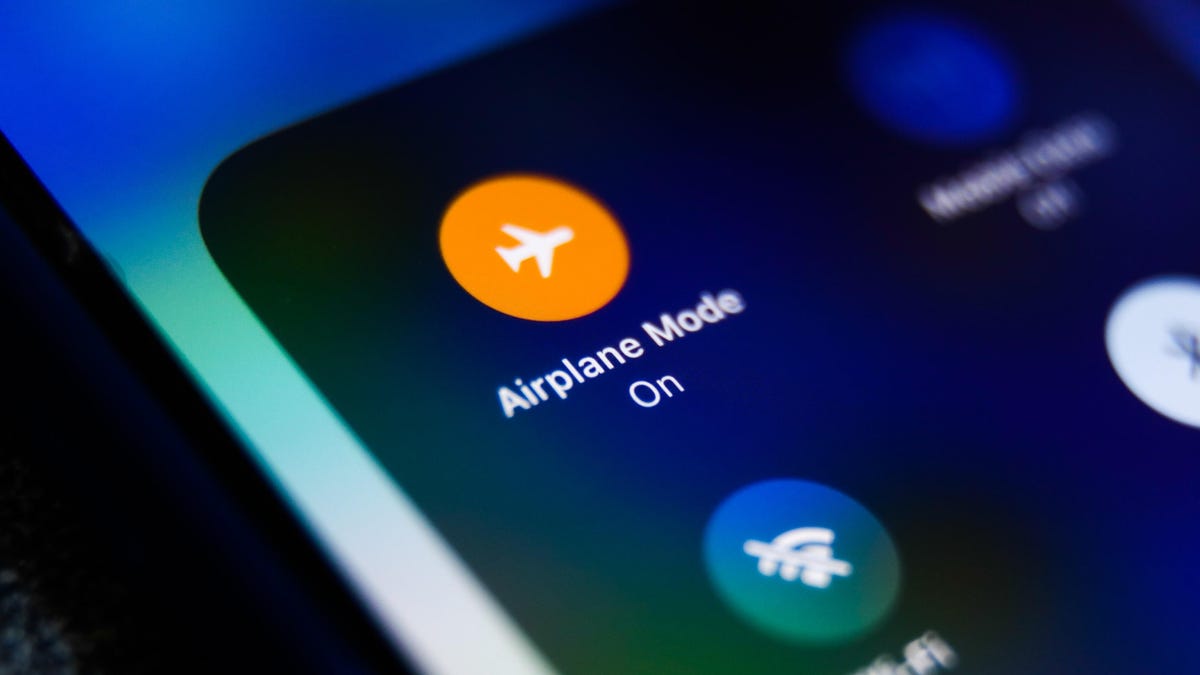- cross-posted to:
- [email protected]
- cross-posted to:
- [email protected]
Uneducated writers thinking using phone during flight is the same thing as using phone on the ground. It’s not.
Phones won’t interfere with sensors and stuff on airplane. That much is true. However pilots need to communicate with all kinds of airport staff over FM radio and there, since it’s an analogue signal, phones can cause that familiar disruption. It won’t destroy equipment, but you will annoy pilots and might prolong departure time. Same thing when landing, you are coming from no signal zone and all of the sudden 100 phones starts talking at the same time when pilot is receiving instructions from the airport.
This is why you can talk during flight, but not takeoff.
I put my phone in airplane mode if for no other reason than if it’s constantly trying to connect to a signal or Wi-Fi, it drains the battery way faster.
Or that. Whatever the reason is, if one is being asked to disable phone, then disable it. There’s no reason to be an smartass and cause issues.
That disruption is from a 2G/GSM handset. Those networks were turned off a decade ago.
Pilot here. Still on the A320 series it’s obligatory to turn off the electrical devices for low visibility approaches (ILS Cat2/3) as aircraft’s navigational systems are not protected (at least certified) against RF interference.
Stupid article.
As of Jan 31, 2024 any planes still not hardened their altimeters to meet group 4 performance are restricted from flying auto land, I/II ILS ; and for the most part the airlines still flying them aren’t using those planes in US airspace. It doesn’t mean that there aren’t any flying just that when they are they’re restricted by the FAA as to how they can operate.
Many more planes outside of US airspace, and plenty of those are rather older than 2024.
The article was explicitly discussing US airspace, hence my comment about FAA regulations. No one is doubting that there are a significant number of planes elsewhere in the world, governed by other countries air authorities, that don’t need to deploy a fix to their altimeters to ensure no interference from outside radio sources. Also as we’re only ending the second month of the year I’d speculate that near 99% of the planes in operation are non 2024 models.
Also, it’s important to note that it’s not the phones on the planes as much as the 5G towers in range of airports that cause the issues. That’s why the rollout of 5G-C towers near airports were on hold for several years to allow airlines to retrofit/upgrade their radio altimeters.
General observation.
As people lose more and more real freedoms [lower real wages, more crowded roads, small retail stores swallowed up by mega-corps] they cling to false freedoms. They will keep those phones on, because it’s their right to, dammit!
Can confirm. I own a pair of noise canceling earmuffs (meant for sport shooting; my dad was into guns). They’re completely unshielded so I can pick up interference from all sorts of signals. It’s fun to switch my phone between different networks to hear what 2G/3G/LTE/5G sounds like. I can even hear WiFi and find the dead spots in my house.
Point I’m making is that GSM is still sticking around here as a backup so when I drop my phone to 2G it sounds exactly the same as it does in this video.
GSM is still very much alive in many countries.
3G has been turned off in a lot of places, but 2G is still very much used globally. It’s still the last fallback for phones to maintain basic texting and calling functionality. In many places emergency services also use it for e.g. emergency information via text message.
Last time I flew, there was no signal at all while flying. not even GPS!
There was GPS signal, it’s just by design that chips are not allowed to lock at above certain speed to prevent military use. But even if there’s no signal, mobile phone will try to find tower. If it doesn’t find one it will try increasing transmission power.
But even if there’s no signal, mobile phone will try to find tower. If it doesn’t find one it will try increasing transmission power.
Thus draining the phone’s battery much faster.
Same thing happens if you are camping in a remote location with weak or non-existent coverage.
Yup. Although it’s been a while since I found a place without mobile signal for camping. This planet is getting crowded.
What? Every smartphone I can remember owning has gotten a GPS signal if I hold it up to the window. Plenty of planes have GPS on board too. If there is a speed lockout, a 737 isn’t enough to break that threshold.
Speed limit is indeed above speed that 737 can fly (see addendum), but it’s not only reason why GPS sometimes doesn’t lock. On the plane your phone doesn’t get assisted GPS, where rough location calculation is based on ground data like WIFI networks and GSM towers, so time to first fix takes significantly longer because your phone only has access to L1 frequencies. Since it takes a while, 30s for entire satellite message to be transmitted, it’s coordinates and the like, and there’s no help from ground stations for crude calculation combined with speed of the plane it all ends up contributing to a significantly longer time to first fix or perhaps even problematic fix in the first place.
So all in all, speed contributes to the problem. Yes signal was present at all times. And no, speed is not the sole factor but contributes a lot. GPS chips have improved quite a bit over the time so some old devices will definitely have a problem finding location on plane. Newer ones won’t, especially considering they have access to other networks like Galileo, GLONASS and BeiDou.
All GPS receivers capable of functioning above 60,000 ft (18 km) above sea level and 1,000 kn (500 m/s; 2,000 km/h; 1,000 mph), or designed or modified for use with unmanned missiles and aircraft, are classified as munitions (weapons)—which means they require State Department export licenses.[126] This rule applies even to otherwise purely civilian units that only receive the L1 frequency and the C/A (Coarse/Acquisition) code.
Edit: What airplanes have on board, is access to different frequency which your device doesn’t. It’s not comparable.
That makes sense! Thanks
Next time you’re on a flight, download a GPS speedometer app and launch it right before takeoff. You’ll notice that it’ll accurately measure the plane’s speed up to around 500 MPH, before it suddenly stops giving you a speed readout.
Like the other person said, this is to prevent your average dude building a guided missile using an old phone they have lying around.
It’s a built-in security of the protocol. For accurate speed measurement device would need access to L2 frequencies, which carry encrypted data used for additional corrections, faster calculations, atmospheric conditions, etc. One can certainly get a location tracked through phone, but it’s not solely though GPS, it’s most likely combination of other positioning systems.
Probably would just use an IMU exactly as the plane itself already does for its own navigation.
They get a lock on the ground, synchronize the IMU with the Earth’s orbit, and they keep track of where they’ve moved from the origin, supplemented by GPS.
You are welcome. Although, like I said in other reply, speed is not the only limiting factor. It just makes it harder to find location. There are number of other things.
All the comments about technical details and practical details…
Are we forgetting that when dealing with millions of people, plus bureaucracy, in a potential death risk, it’s worth being slow and cautious about relaxing former safety rules.
That was my understanding, that once upon a time it was legitimately feared that mobile phones could caused accidents (and thought they had indeed caused one). So, besides the other issues people have highlighted in the comments, to walk back from the safety rule of turn-them-off is a slow process.
Commercial air travel is not known for going, “ah, it’s probably fine, don’t worry;” except in the case of emergency exit door bolts.
Also, I’d like to add:
You don’t need to use airplane mode on airplanes
… Please do follow the rules, and do what the cabin crew ask you to do. Otherwise, even if you don’t directly endanger the plane, you make it harder for them to do their jobs and keep everyone safe.
I never fly anyways!
“You have a reminder set for 5pm today,” my phone said.
“A reminder? What is it?” I asked.
“It’s a notification to ensure you don’t forget something, but that’s not important right now,” the phone replied.
Then I remembered I’d left it in Airplane! mode.
The article is crap, but it is correct in that you don’t need to use airplane mode. I would, however, advise to still use it purely to preserve battery life of your device as otherwise it will very aggressively keep scanning for networks and drain it.
The article is crap,
It is Gizmodo after all
Yep. I do wish there was a toggle for the cellular radio by itself (rather than just mobile data). It’s annoying to have to go airplane mode then turn WiFi and BT back on.
On Android you do have that toggle
And if you turn wifi back on once, it’ll tell you that it can remember and always leave Wi-Fi on if you want.
Don’t even have to find the setting
Meh - flights have USB ports now if your battery is low.
But that’s just a waste of electricity then? And battery health?
Unless you’re really into flying the effect is minimal
It also costs you nothing to disable it. And if everyone keeps it disabled for all their flights, it’s not minimal anymore. So I don’t really see the problem here.
Imagine the savings if all of those people just didn’t fly! lol
That doesn’t change that disabling cellular makes a difference, so I don’t see your point. Just because something’s not perfect, doesn’t mean it can’t make a difference.
It just makes such a tiny, insignificant difference that it really doesn’t matter one way or the other.
How to use WiFi in plane if you put your phone in airplane mode? nonsense.
Airplane mode is no longer about shutting down all wireless communication. It’s been for some time.
Now it’s shutting down the cellular connection only, wifi and bluetooth stay on.
My phone allows me to independently choose Wi-Fi and Bluetooth state separately from the cellular state.
I think it’s still worth doing so your phone isn’t rapidly trying to connect and disconnect from nearby cell towers as you ascend and descend. Maybe there’s already protections in place for this case but it makes sense that it could add a lot of unnecessary strain on certain cell towers.
Then why flight attendant says “switch your devices to flight mode”? It was a week ago in domestic european flight.
I was on a domestic flight in Europe two months ago and there was no such announcement. They were probably just being nice and saving you some battery.
But there is absolutly no reason to turn it off because of any saftey concerns with the plane.
I always have my phone on. No one can tell me to turn it off as it’s my right










